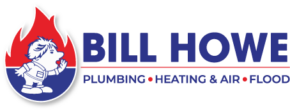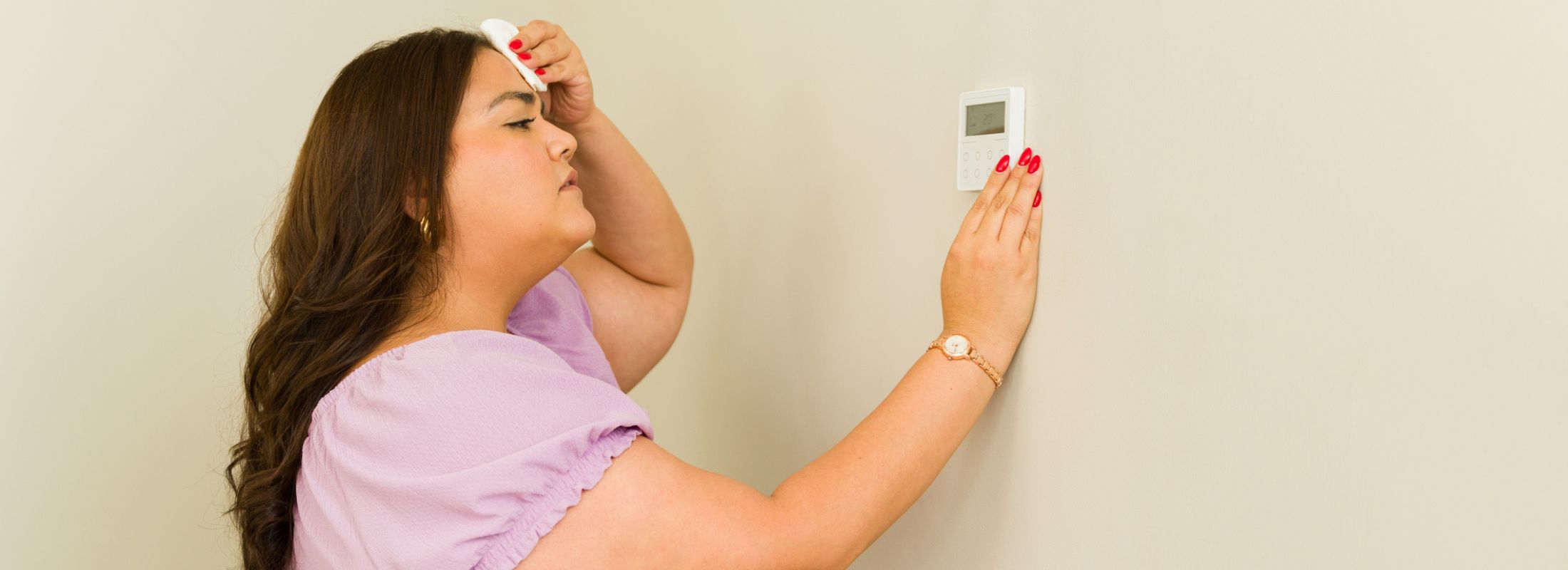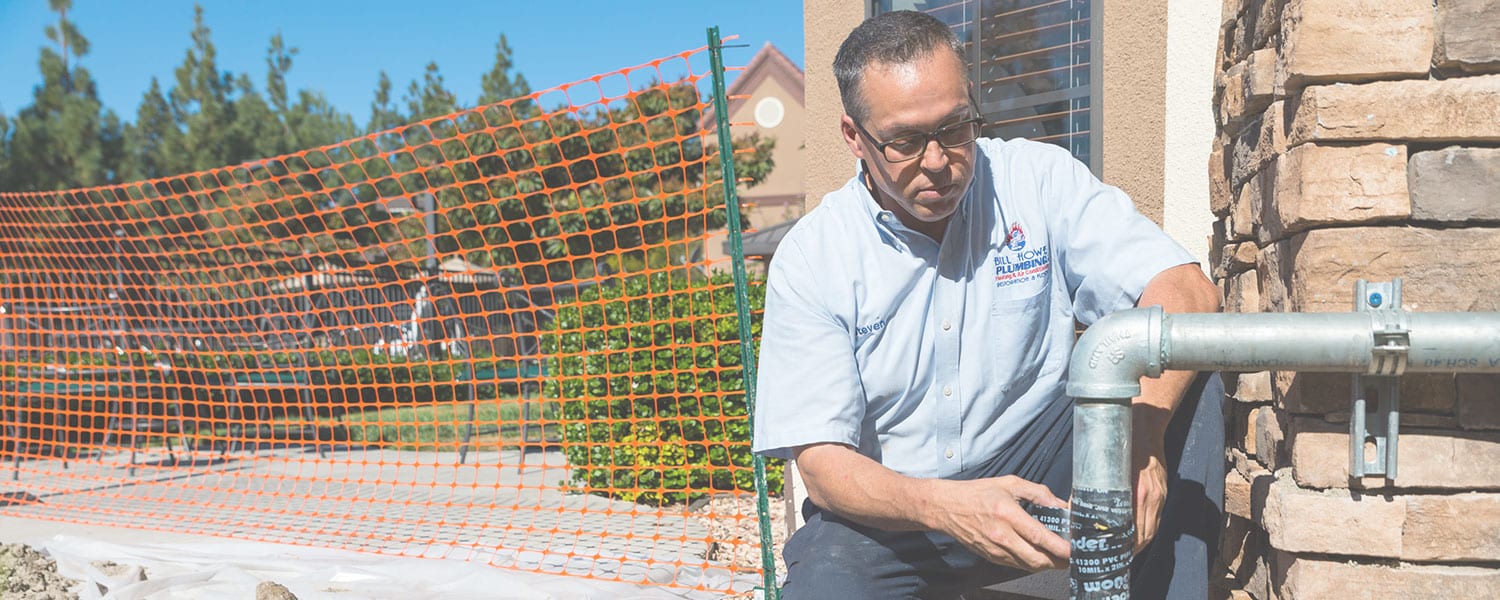HVAC maintenance is the most important thing a homeowner can do to prolong the life of their system. But what is HVAC, and how does maintenance help?
What is HVAC
HVAC stands for Heating, Ventilation, and Air Conditioning. Heating and air conditioning are pretty straightforward and the comfort that homeowners seek when installing a new system. Ventilation is the proper air circulation for your HVAC system and should be something you discuss with your HVAC professional during new installations and routine maintenance. Why HVAC is important will mean different things to different people. Residential customers are likely seeking comfort and good air quality, while schools, hospitals, manufacturing plants, and other large commercial spaces require specialized systems for efficiency, comfort, and safety of the occupants.
Air Conditioning Filters
A/C filters are the least expensive form of maintenance and yet one of the most important aspects homeowners should be paying attention to throughout the year. The Department of Energy and HVAC professionals alike recommended cleaning or replacing air conditioning filters at least every 90 days. During excess use, it is a good idea to do this on a monthly basis, especially to protext pets from heat in the home, in a city setting with more traffic, and for individuals with allergies or respiratory problems.
A clean air filter allows the air to pass through ducts as the system unobstructed. This allows the system to work efficiently, not harder and will increase air flow. Homeowners and the home will breathe clean, fresh air easier. All systems collect dirt, dust, and debris through normal use. It significantly increases when filters are dirty which harms the system.
When left unchecked, it forces the system to work harder to do its job and obstructs cool air from flowing into the home. When homeowners notice the system is running but no cool air is coming from the vents, a dirty filter could be the culprit.
Homeowners also increase the efficiency of the system when they choose a high-efficiency filter and keep it cleaned or changed regularly. Filters come in all different types and ratings (check out Merv article?) for different purposes, but the higher the rating, the smaller the particle they can keep from entering the system. High-efficiency filters help to reduce airborne allergens and bacteria in the air as well.
If homeowners are unsure of what type of filter to use, or how to clean or change their air conditioning filter, their local HVAC professional will walk them through the process during annual maintenance.
Keep the Condenser Clean
The outdoor condensing unit is built to withstand the elements, but also collects dirt and debris over the life of the system.
Homeowners should make sure that the area around the condenser is kept clean and landscaping cut back to ensure the unit’s airflow is not impeded. Do not store anything next to the condenser, or place any object on top of the condenser, unless it is specifically designed for the unit.
Homeowners should check the condenser during peak months periodically looking for heavy build up of dirt or debris. Debris can collect on the fan blades and along the exterior “fins” of the condenser. Homeowners can clean the exterior on their own with special air conditioner brushes but should leave any interior cleaning to the professionals.
Condensate Lines
All air conditioners have a condensate, or drain line to eliminate the moisture pulled out of the air. Did you know air conditioners were first invented to remove humidity? Cool air is a byproduct of which we can all be thankful, but that means during peak season, water can accumulate and clog drains that could stop the air conditioner from working. While homeowners can unclog small clogs in their condensate lines, if they develop frost on the drain lines or any area near the condenser, or if the hvac unit stops working, they should call the HVAC pros.
Professional Air Conditioner Maintenance
Earlier, we mentioned that professional air conditioner maintenance is recommended to keep the A/C working in optimal condition. It is also a requirement to maintain any manufacturers warranty. With regular maintenance, homeowners’ can expect their hvac equipment to last 15 plus years. That does not mean that it will be repair free during its life, but maintenance can save money and headaches by catching little things that, left neglected, could turn into major repairs and/or even replacement before necessary.
It is best to schedule a licensed professional HAVC specialist to perform air conditioner maintenance in the spring. Spring is typically less busy for most professionals, and by performing maintenance early, homeowners can beat the heat and rest assured that they will have cool air all summer long. If a homeowner has also kept their unit clean and maintained by replacing the filter and ensuring nothing obstructs the condensate line and condenser, routine maintenance will be a breeze and professionals will get the A/C ready for use.
What is Included in HVAC Maintenance
Routine air conditioner maintenance by a licensed professional should include:
- Checking refrigerant levels and testing for leaks
Refrigerant levels should not need to be refilled every year. In fact, most companies will not refill refrigerant more than once, even if there are refrigerant leaks. Depending on where the leak occurs, this could be a minor repair but will require a diagnostic test.
- Oiling mechanical components including the belts and motors
Just like your vehicles, air conditioners and heating units contain mechanical parts that require regular tune-ups and oil to keep them running smoothly.
- Cleaning the fan and blower motors and condenser (if needed, some cleaning services may incur additional charges)
During routine maintenance, HVAC specialists will clean the fan motors and condenser. However, if the system needs to be taken apart due to excessive build-up, the service will go beyond the regular tune-up, and additional charges or diagnostics will be required.
- Running a thermostat diagnosis
Checking to see if the thermostat is performing as it should is essential to the system. If any abnormal functions are discovered, an estimate for repair will be provided. If the thermostat does not turn on, it could mean simple battery replacement or a larger issue.
- Checking the ductwork for proper seals
In order to maintain proper airflow, ducting should be checked regularly to ensure that no seals have come undone, there are no kinks, and/or no holes.
- Measuring the airflow
The technician will check and measure airflow to make sure there are no larger issues restricting the air conditioner functionality.
- Inspecting the electrical components including connections, terminals, and fuses
One of the most common causes of electrical problems are rodents who have chewed through a wire. A secondary cause could be a fuse or breaker. During routine maintenance, HVAC specialists will locate any shorts or potential electrical failure.
- Performing a safety check on the entire system
Safety checks are routine in all HVAC maintenance from professional specialists.
Lastly, your HVAC specialists should discuss any recommendations, provide homeowner tips, and ensure the home is properly ventilated.
When to Replace Your HVAC System
With proper care and routine maintenance, your air conditioner should last 15 years, maybe even longer. However, at some point, a new heating and cooling system or air condoner alone will become a necessity. If the unit is 10 years or older and begins requiring regular repairs, it may be time to begin thinking about a replacement. Many systems manufactured and installed prior to 2010, also use R-22, a type of refrigerant that soon to be phased out by the EPA. R-22 is still available if the system develops a leak; however, most companies will not warranty a refill, and by 2020, R-22 will be banned altogether and illegal to manufacture or import in the United States.
If the condensing motor breaks down and requires replacement, it might also be a good time to look at the entire system. Even if it is under warranty, once the motor breaks and is replaced, much like a vehicle, the entire system could begin wearing down. The cost of replacement versus repairs, in the end, may be a wise choice.
Old inefficient systems are also great candidates for replacement, even if the system is still running. During winter and spring months, many HVAC companies offer incredible specials on new home air conditioner installations that could greatly benefit homeowners with a new high-efficiency heating and cooling system at a great price. By installing a high-efficiency system, homeowners can also save money on energy and operating costs. If a homeowner inherited and older and inefficient system, it is also a great time to begin fresh with routine maintenance visits and get the longest life out of their system.
Choosing the best HVAC contractor for service, repair, maintenance and/or new installations is integral to getting the best heating and cooling system performance. Installation is as important as the manufacturer and type of unit and should be performed by an experienced service provider. When researching HVAC teams, be sure to check for a proper license for heating & air conditioning, and ventilation, run a check through the California State License Board to be sure their license has been maintained and is free form blemishes, and make sure they ask as many questions as you do to be sure and address the issues with care. Professionals will spend time with the system to ensure proper installation and the right repair or maintenance plan. Be wary of those contractors that come in, spend five-minute, and present an expensive repair; often times, they should be thoroughly checking the system to eliminate all issues before presenting the homeowner with any recommendations.
If you need service & repair, maintenance or a free estimate for a new HVAC system, trust the name that San Diego has trusted for over 35 years. Bill Howe Heating & Air Conditioning specialists are trained, certified, and care about the safety and comfort of their customers as if they were family. Call 1-800 BILL HOWE (245-5469) for the best HVAC care.




